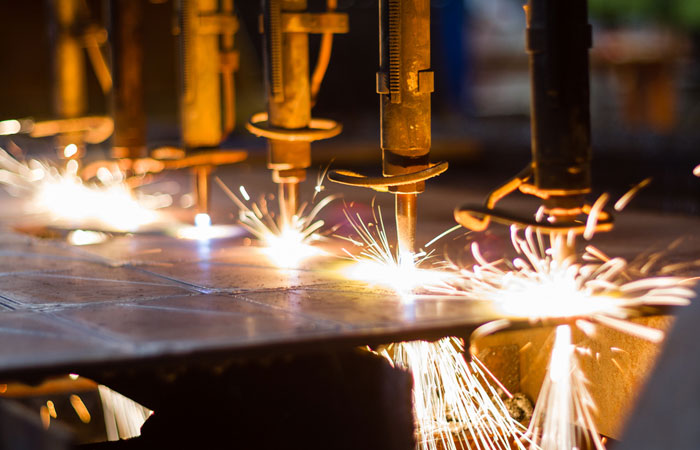- Firms Invest N5tr in Meter Manufacturing
Hailing the investors for the gesture, he said the investments would trigger economic growth.
He spoke at the inauguration of the Meter Box and other Plastics Factory of Mojec International Limited.
The government, he said, was doing everything possible to improve the ease of doing business.
Osinbajo said the nation has huge metering deficit. According to him, one of the ways to solve the problem is to patronise local manufacturers, such as Mojec and other locally-produced meters.
He said: “Let me congratulate the management and staff of Mojec International Limited on their desire and dedication to this project. It gladdens my heart that all our efforts in engaging the private sector is materialising and this is really indicative of real progress and quantum leap for the Nigerian economy.
“It is very obvious that Nigerian talent and creativity have proved time and time that they can compete with the best anywhere in the world. Here in Mojec, it is very obvious. Practically, everyone you see from the factory down to the reception, are all Nigerians. It shows that we are at the forefront of innovation, manufacturing and human capital development.
“What you have seen today tells us that economic growth and development have to do with the private sector. The reality is that we can now produce meter in Nigeria, and what we really need is to bridge the financing gap that is currently in existence. They need cheap financing so that meter manufacturers and the electricity distribution companies (DisCos) would benefit maximally.”
Osinbajo described the facility as a big achievement and milestone that would not only boost local capacity, but create thousands of jobs for Nigerians. While expressing optimism on government’s determination to achieve its target in power generation, he noted that the facility is a huge step forward for the development of the power sector, noting that it would help significantly in addressing the six million energy meter deficit. It is very clear that Nigeria is at the fore front of meter manufacturing in Africa.
Mojec International Managing Director Ms. Chantelle Abdul, commended the Acting President for his commitment to promoting local content and expressed the company’s desire to work closely with Federal Government to find lasting solutions to the problem of steady power supply in Nigeria.
She said the current facilities and factory are capable of producing meters from start to finish. “This factory has provided enough proof that local companies can produce meters that can meet global standard, which could consequently help in reversing the government policy on local meter manufacturing,” she said.
She appealed to Federal Government to assist local manufacturers by formulating policies that would encourage cheap financing, which could go a long way to make meter accessible to the people.
The company, she said, is about to build a world-class research institute, adding that further researches would be made there to enable it discover new ways of producing meters as the science and technology are constantly evolving.
Ms Abdul pointed out that Mojec is the largest meter manufacturing company in Africa, adding that if well-funded, it would be exporting within a very short period from now.
“I am happy to announce that our meter is competitive internationally, in terms of quality and price. We are taking over Africa, as we have started entering into other African countries. Mojec has been predominantly leading in vendor financing over the past three years. We are financing six out of 11 contracts that we are running today, though, majority of our competitors prefer cash transactions. This is why Mojec stands.
“From our Meter Asset Provider (MAP) policy, 70 per cent of meters are expected to be delivered through importation while 30 per cent is local production. If we have a market of about six million metering gap, this means only two million meters are allowed to be provided locally and that can easily be done by Mojec alone. However, there are over six local manufacturers, who can also create jobs and contribute to the GDP and enable Nigeria to become an innovation hub such that we will be able to move our meters into the rest of Nigeria and beyond.
“With this situation, what we are asking is that the policy be reversed as this will enable other local manufacturers to produce more. By so doing, we would be developing local capacity and creating enough jobs that would contribute greatly to our economy,” she said.
Mojec International has delivered over 1.2million meters across Nigeria.

 Billionaire Watch3 weeks ago
Billionaire Watch3 weeks ago
 Startups4 weeks ago
Startups4 weeks ago
 News4 weeks ago
News4 weeks ago
 News4 weeks ago
News4 weeks ago
 Bitcoin4 weeks ago
Bitcoin4 weeks ago
 Naira4 weeks ago
Naira4 weeks ago
 Forex3 weeks ago
Forex3 weeks ago
 Treasury Bills4 weeks ago
Treasury Bills4 weeks ago

























